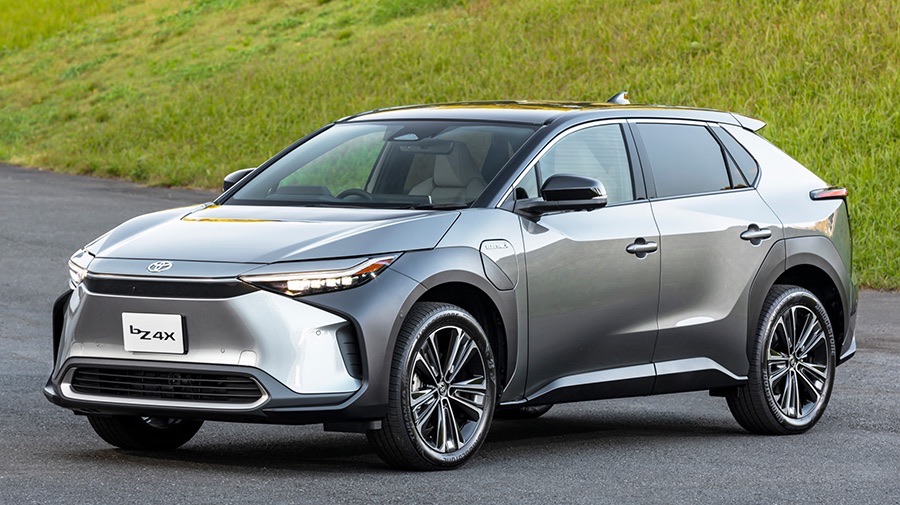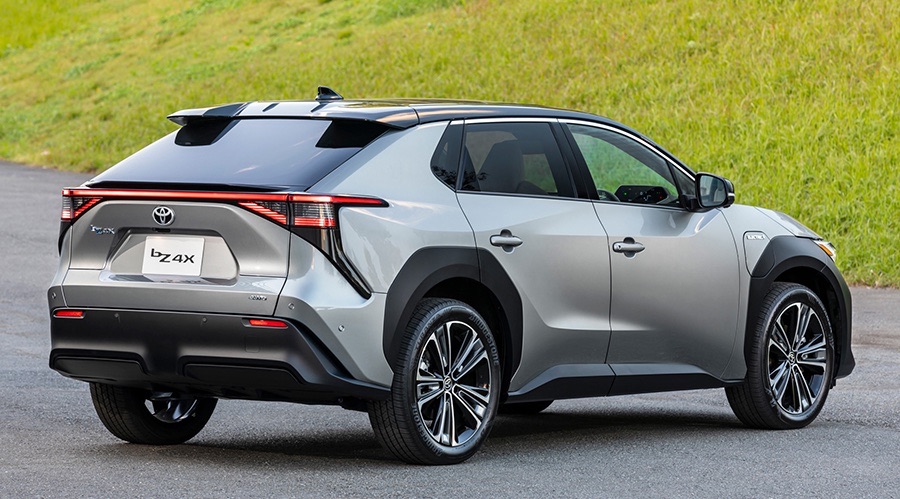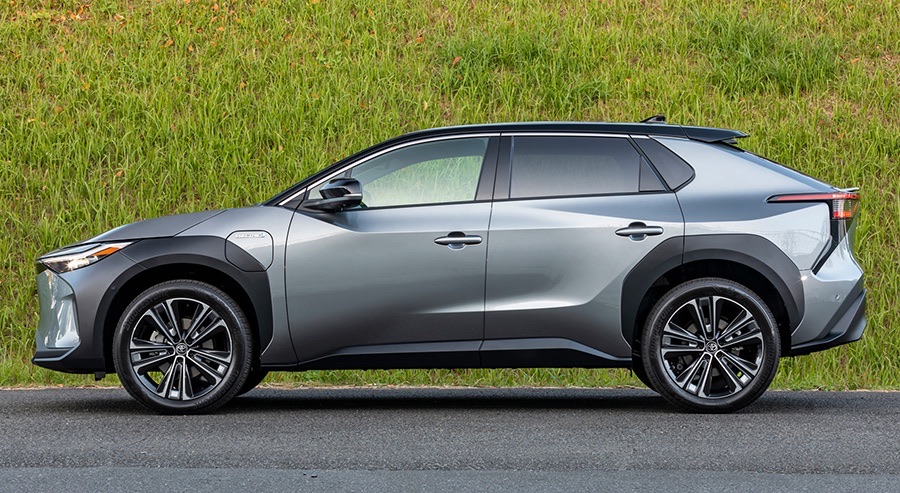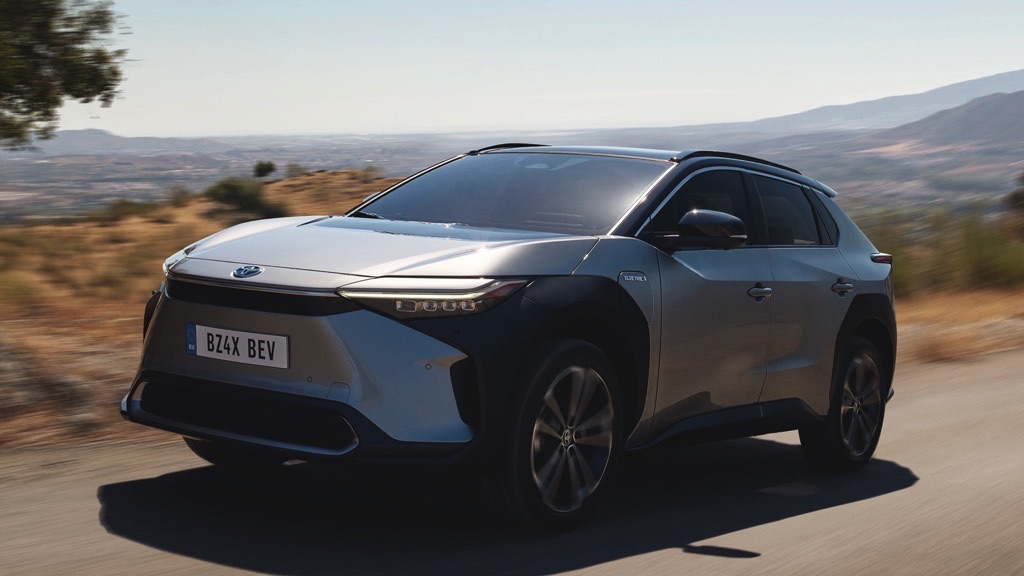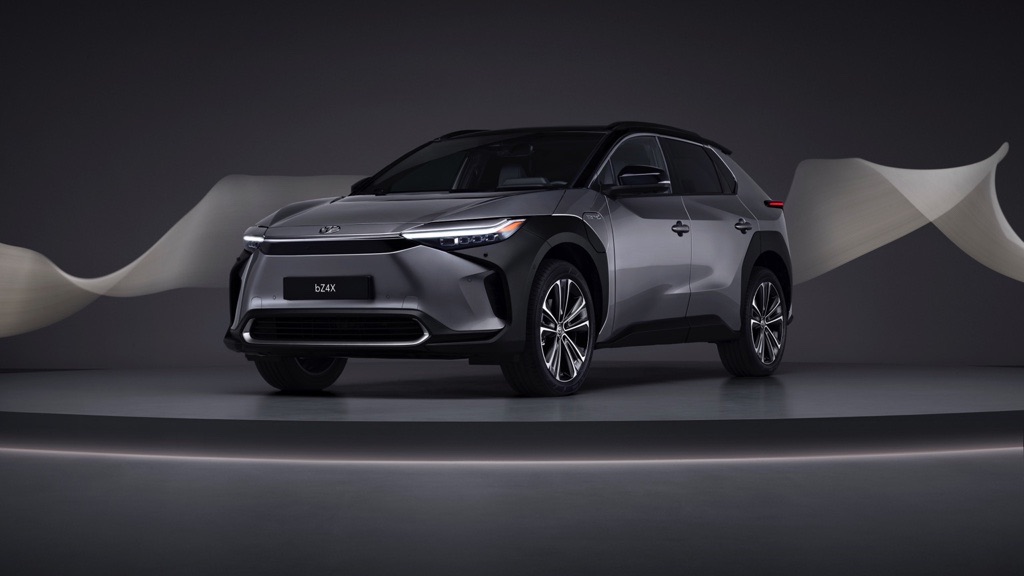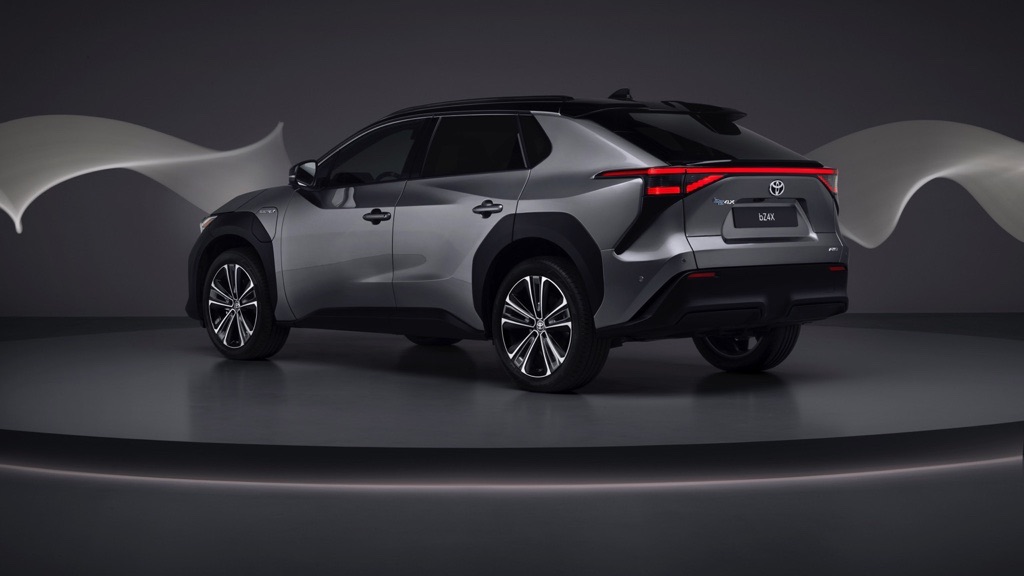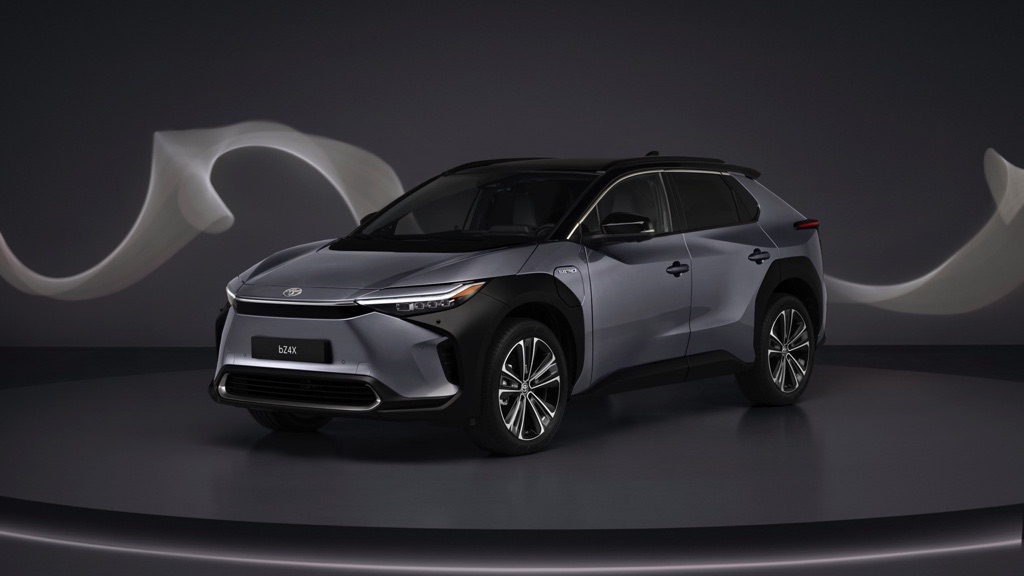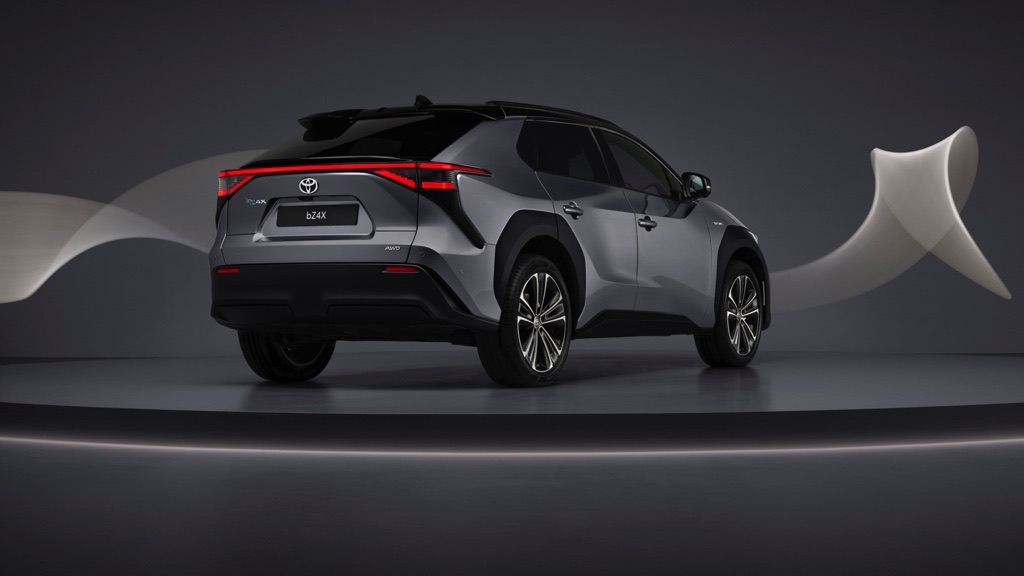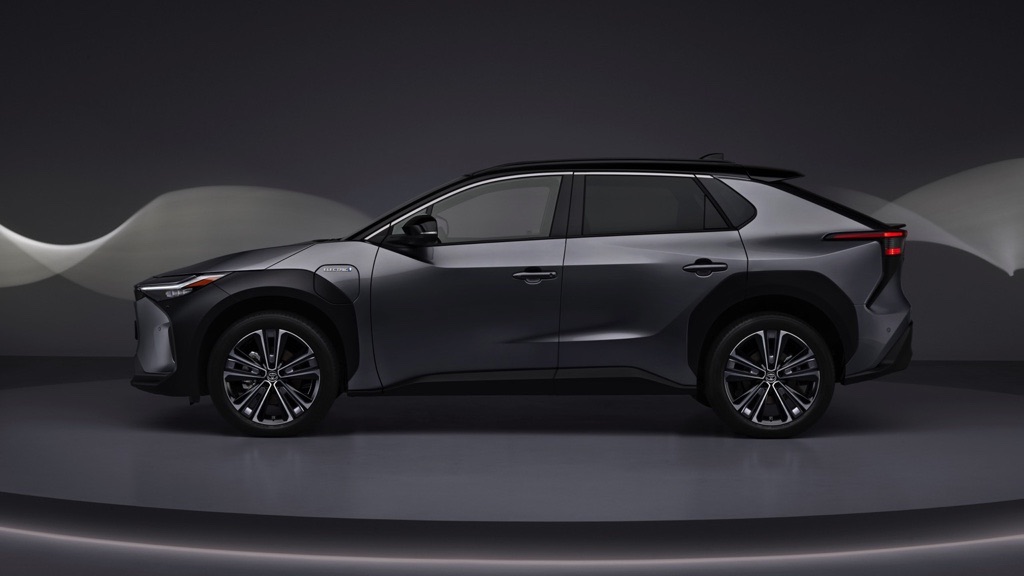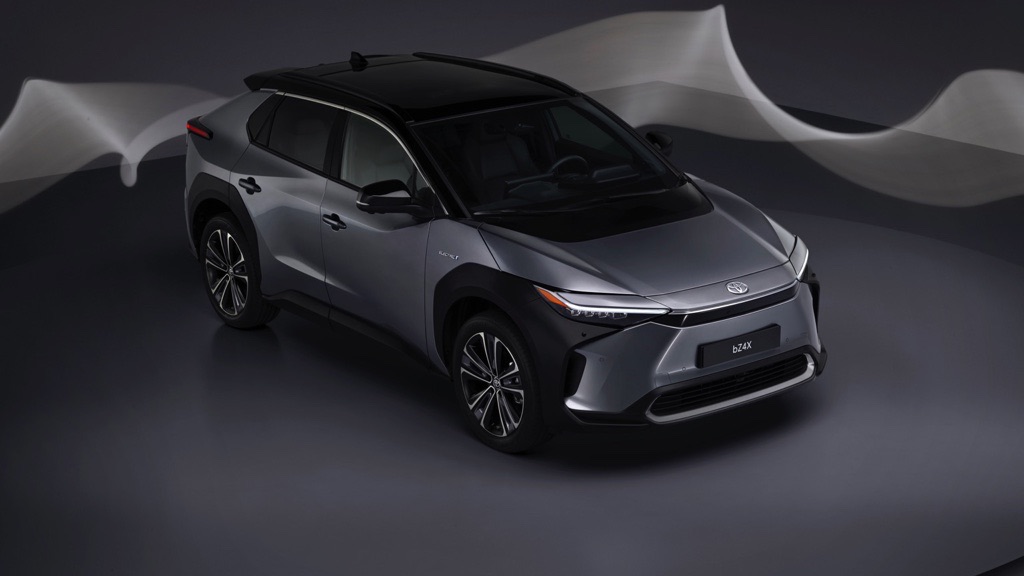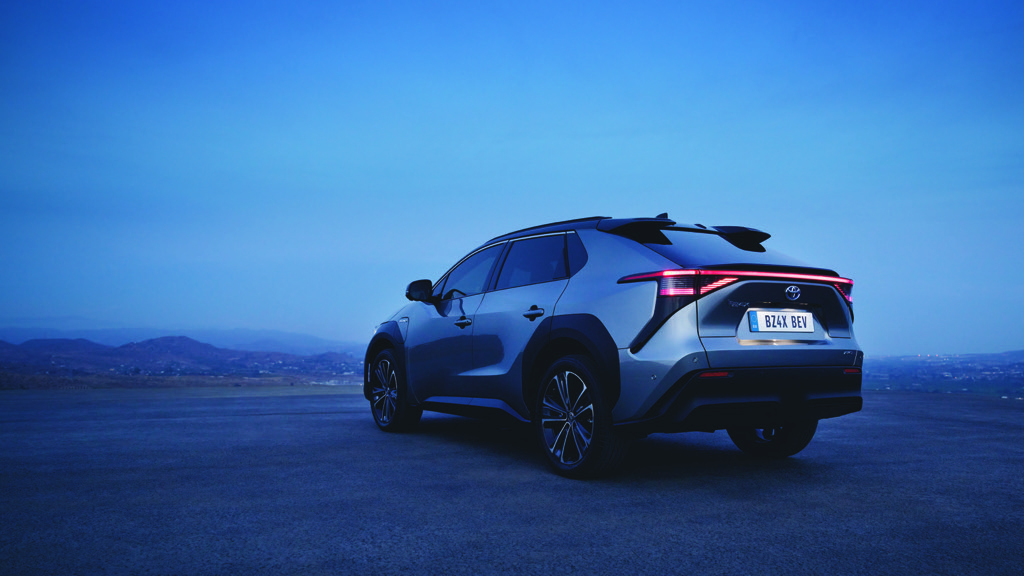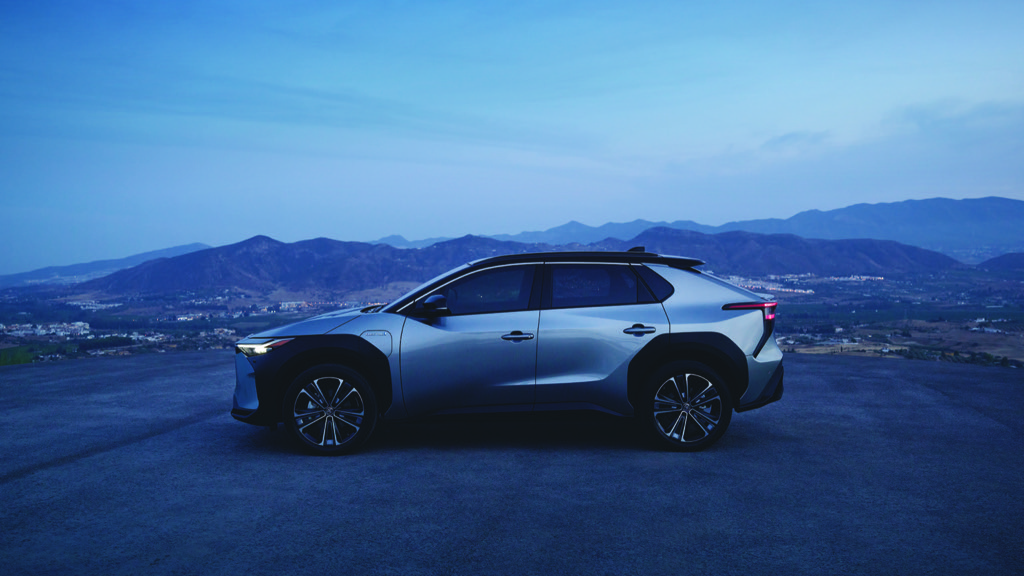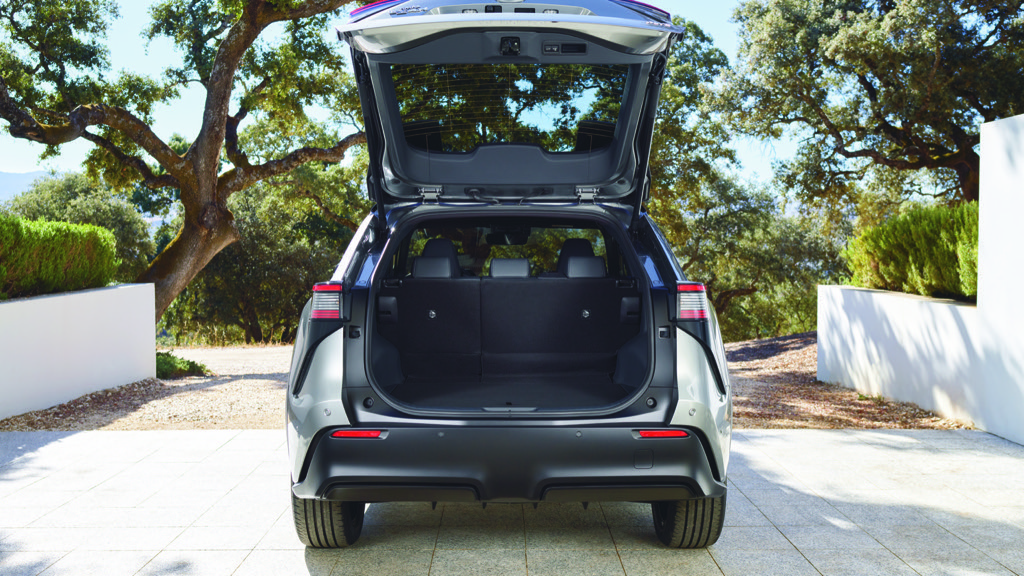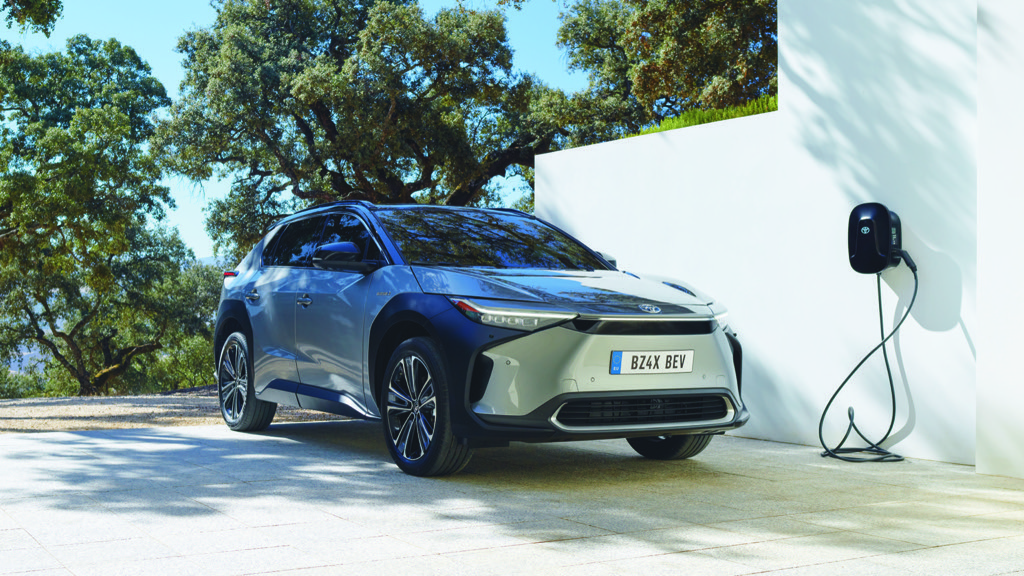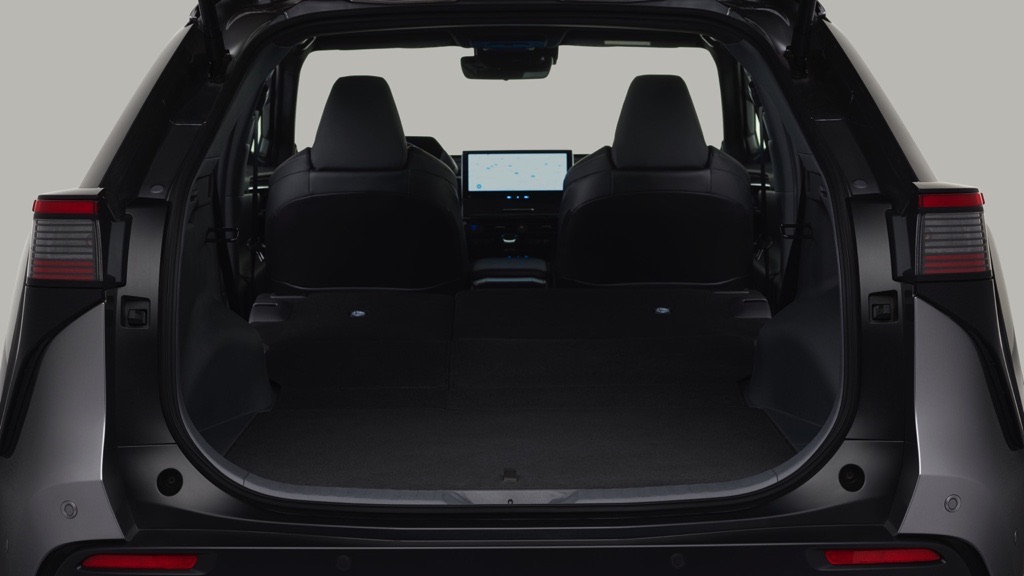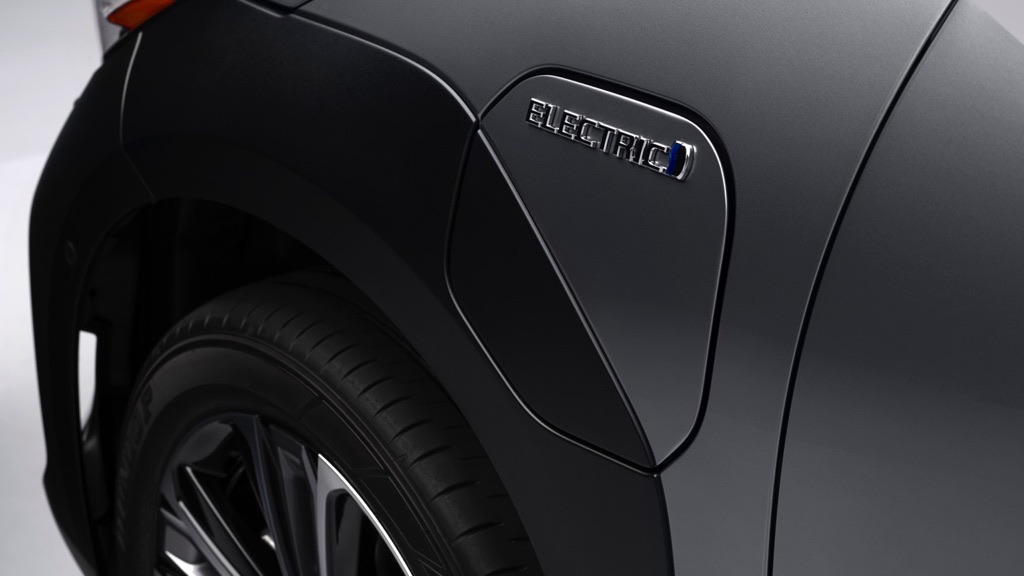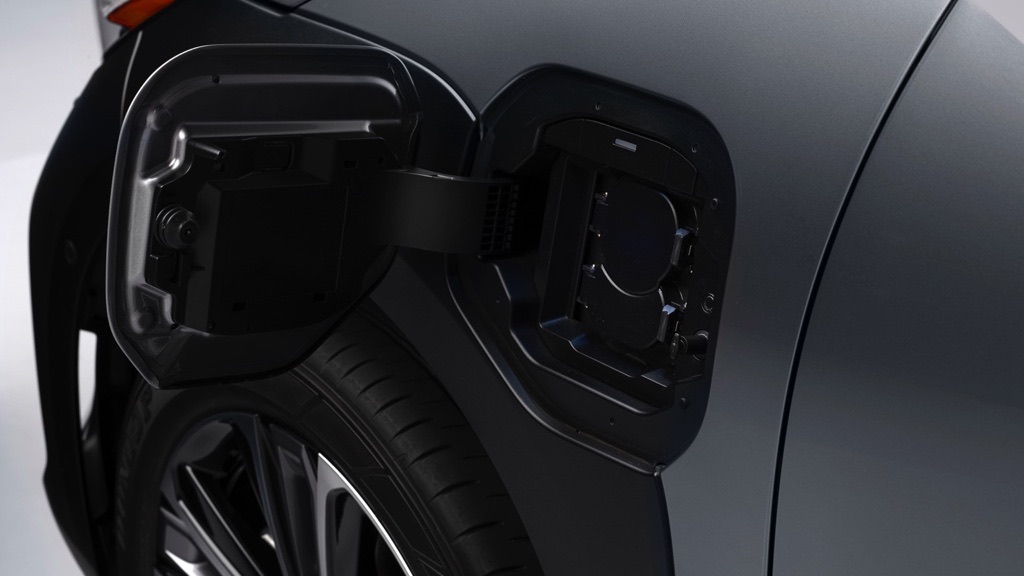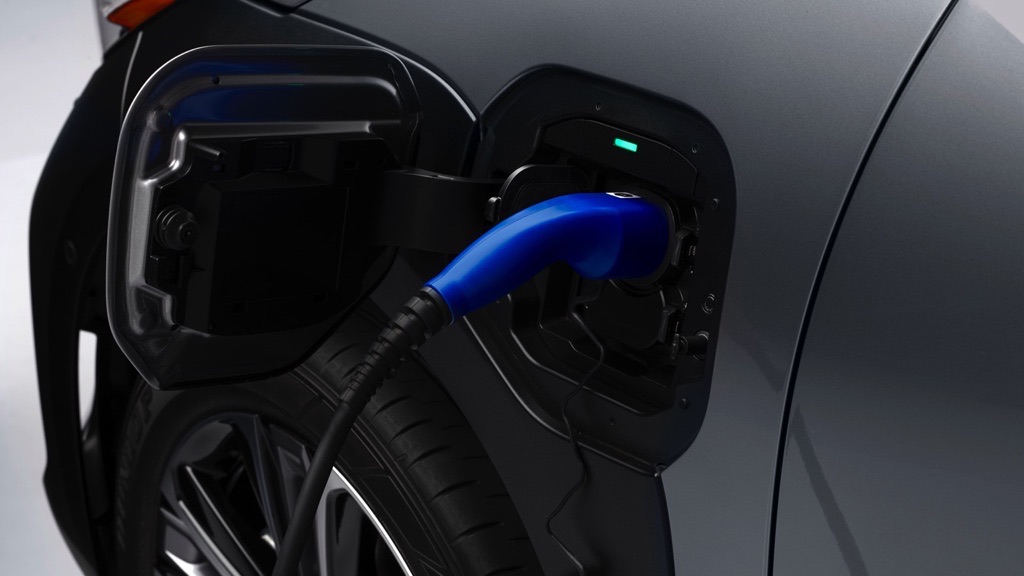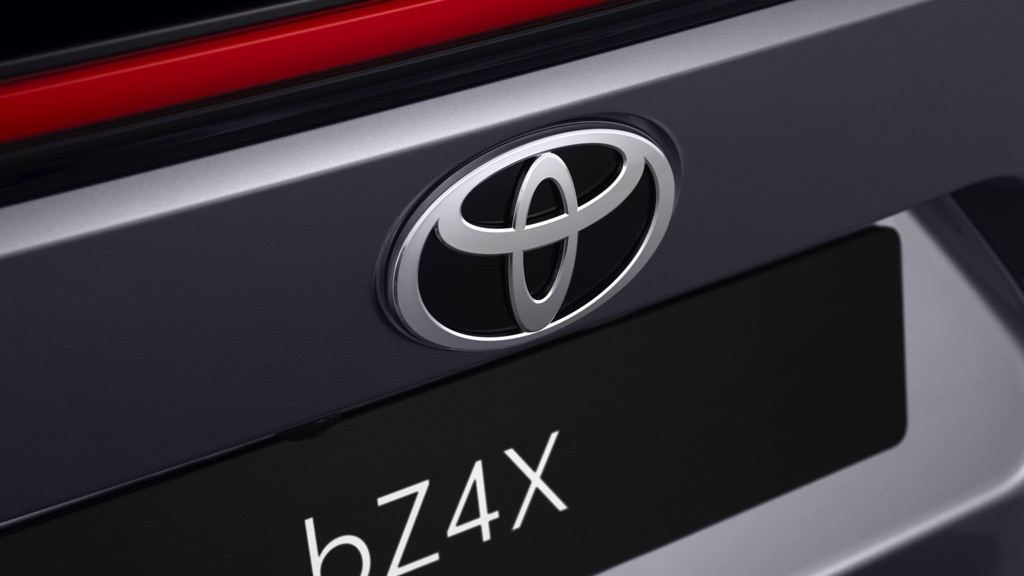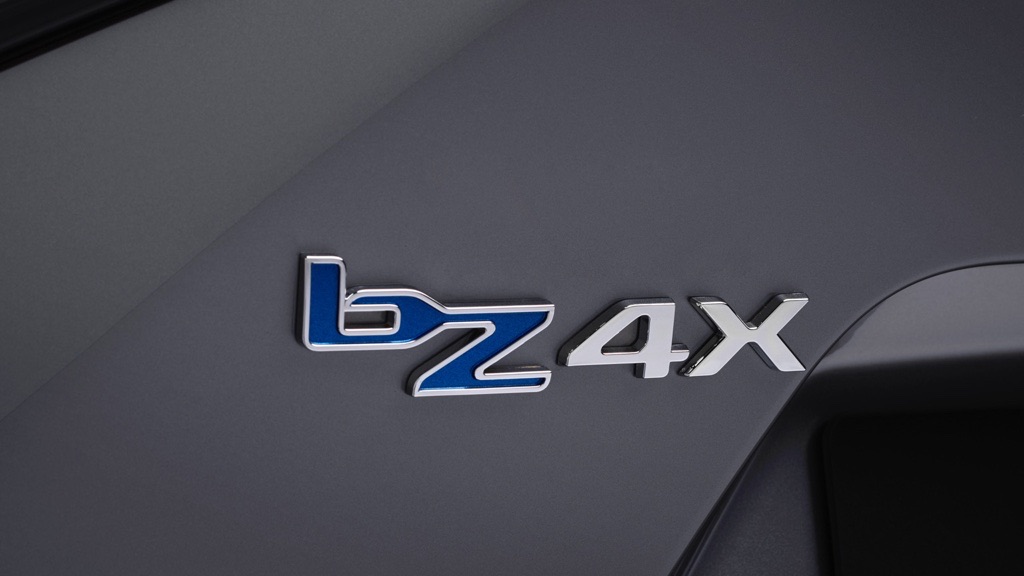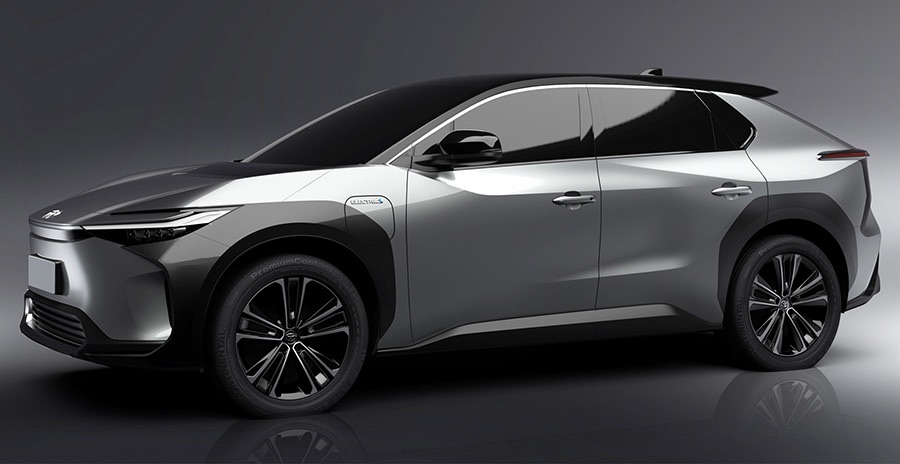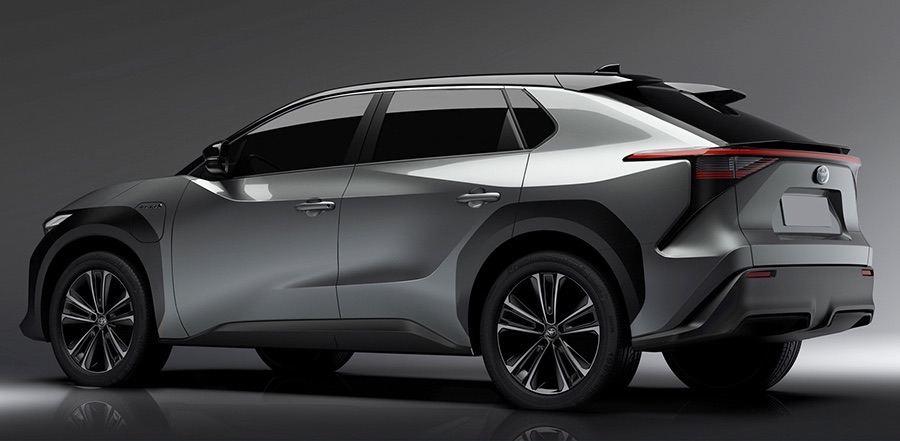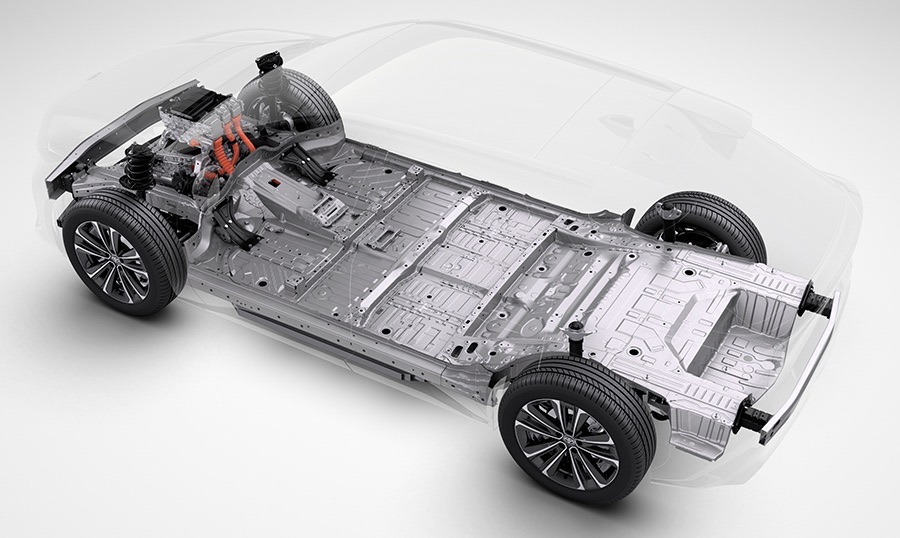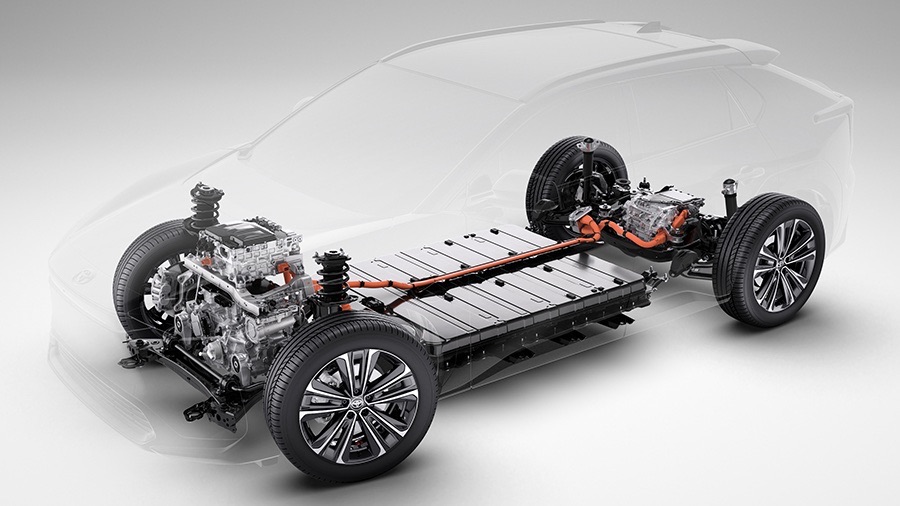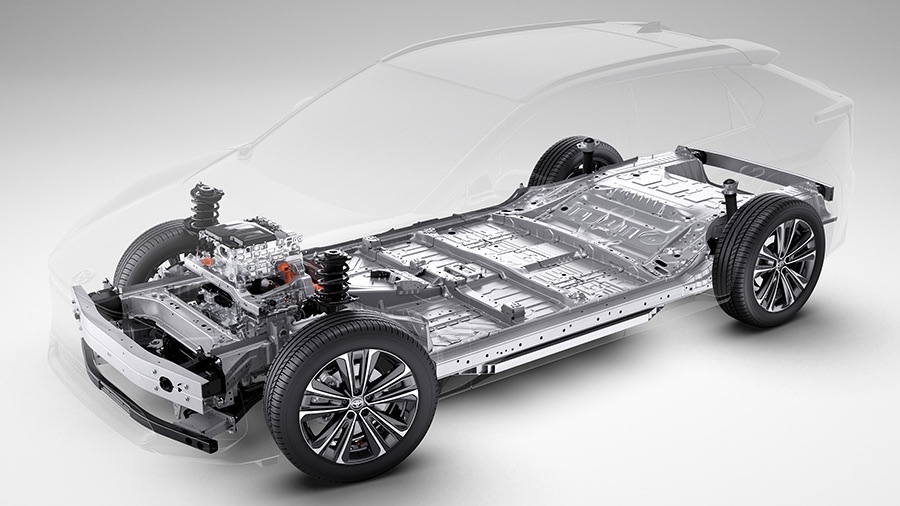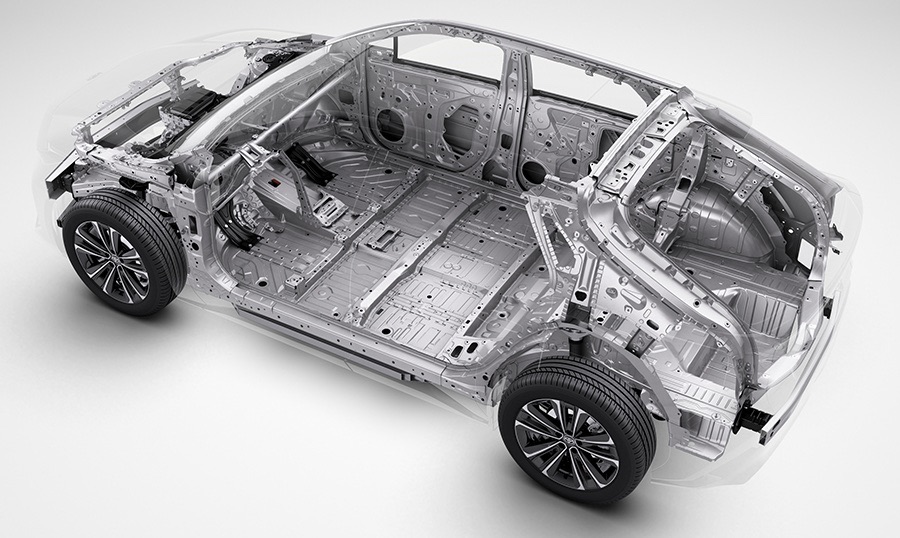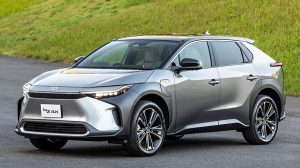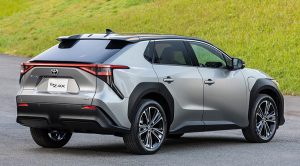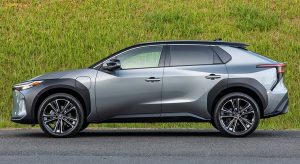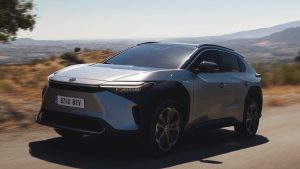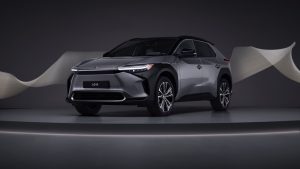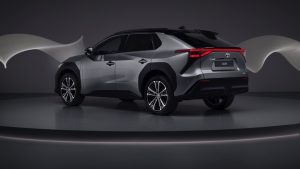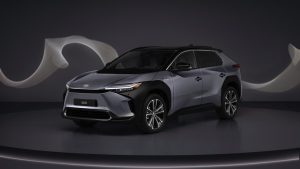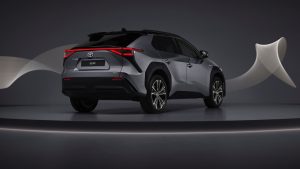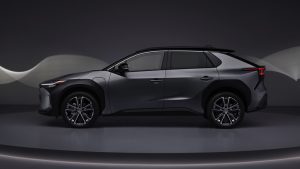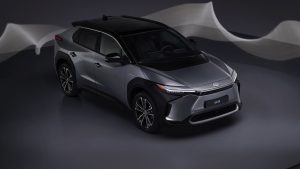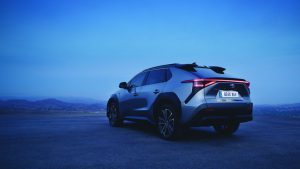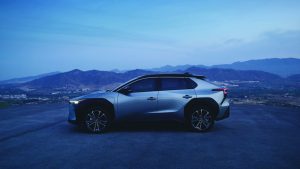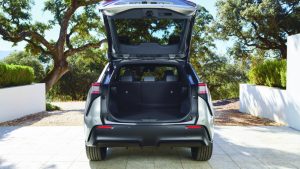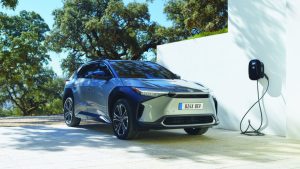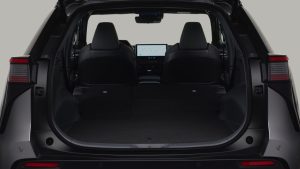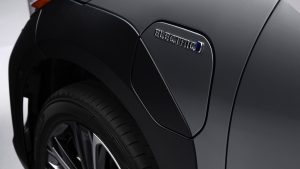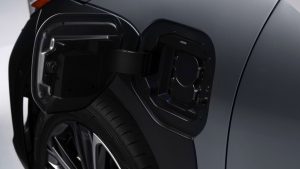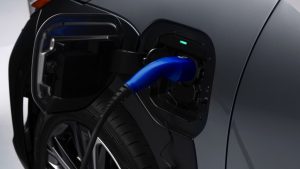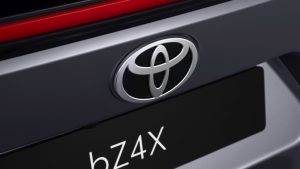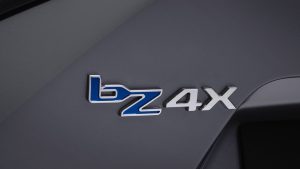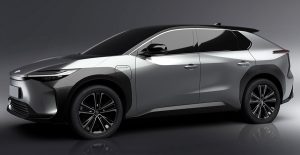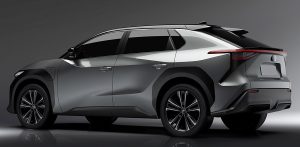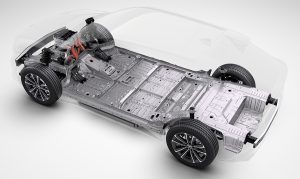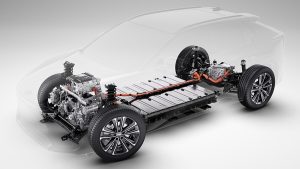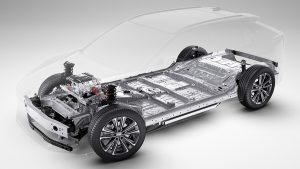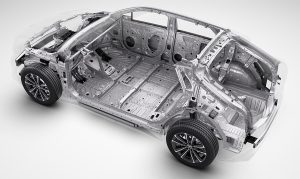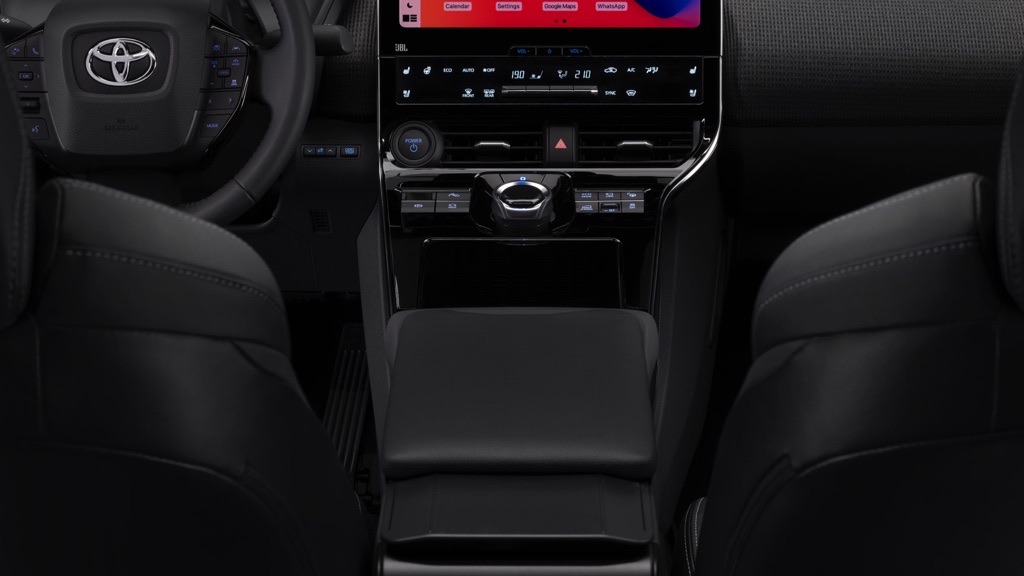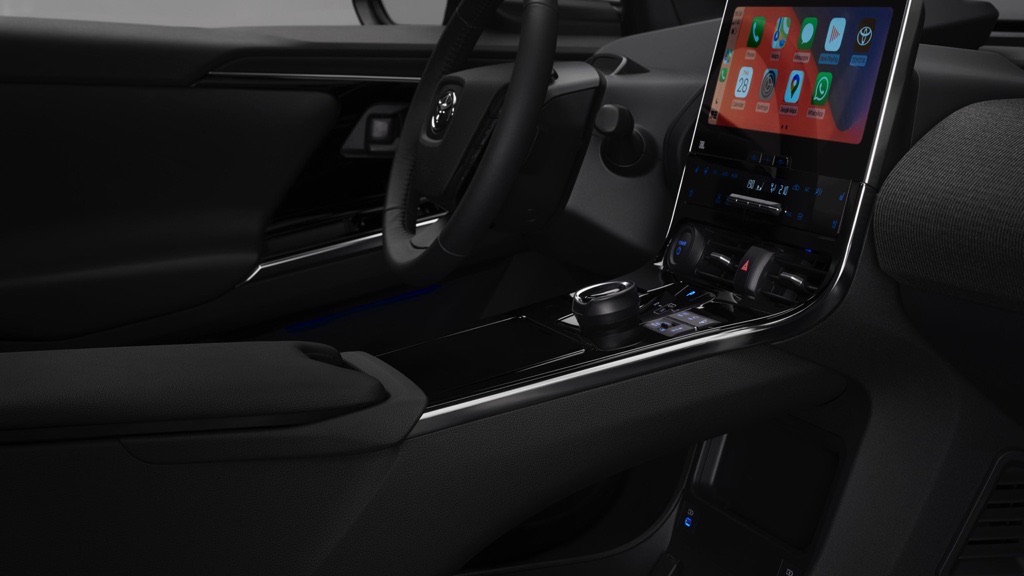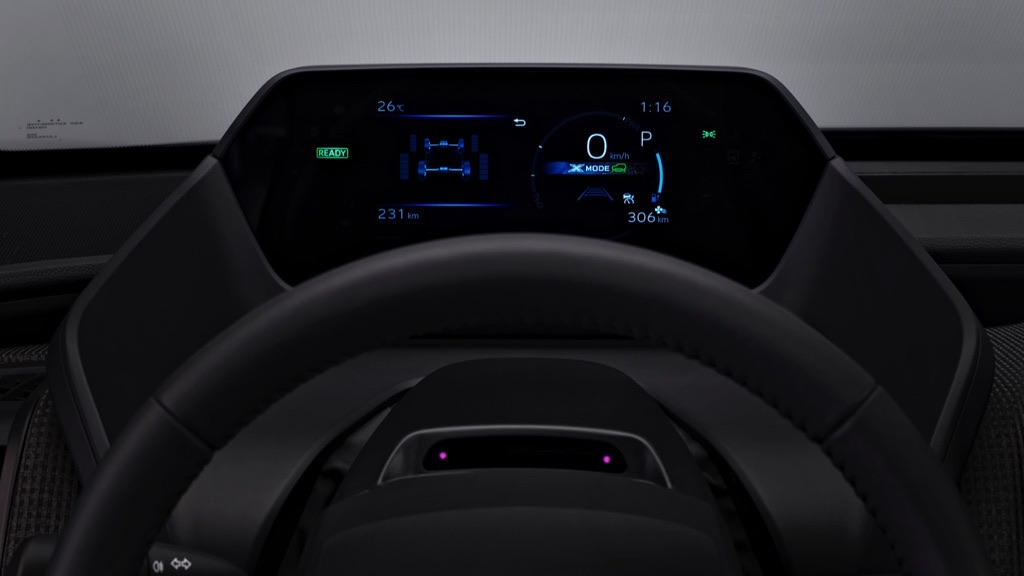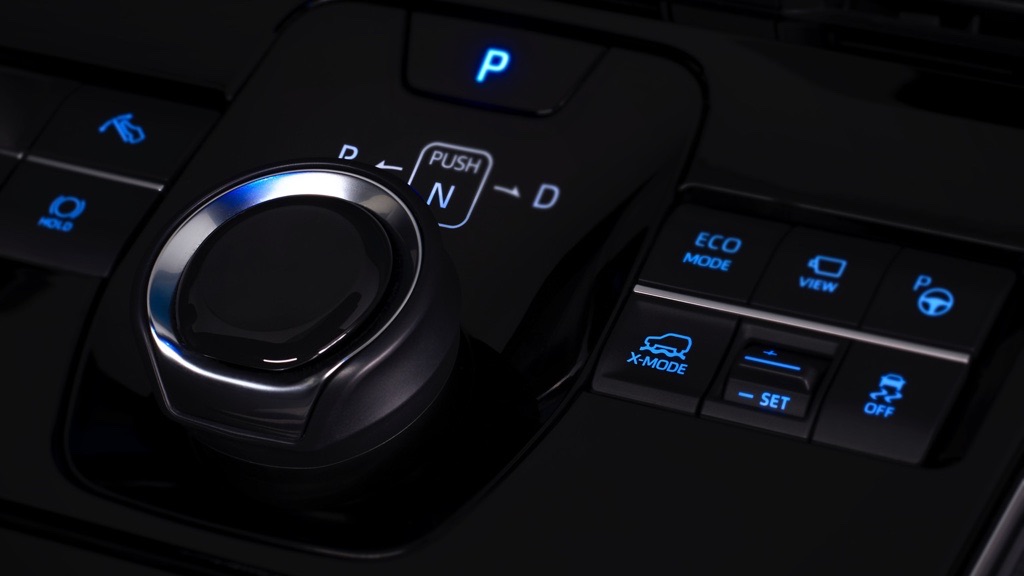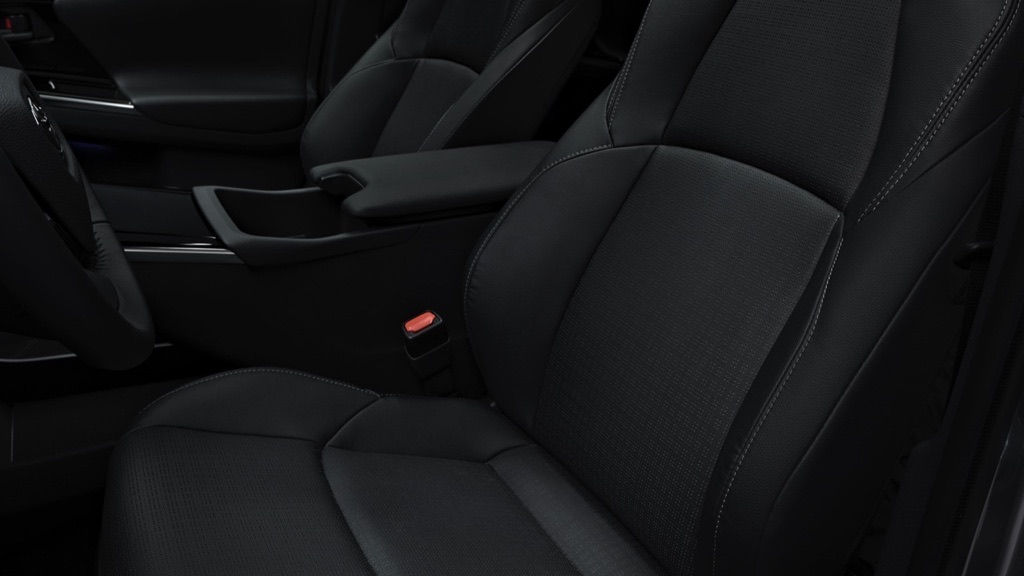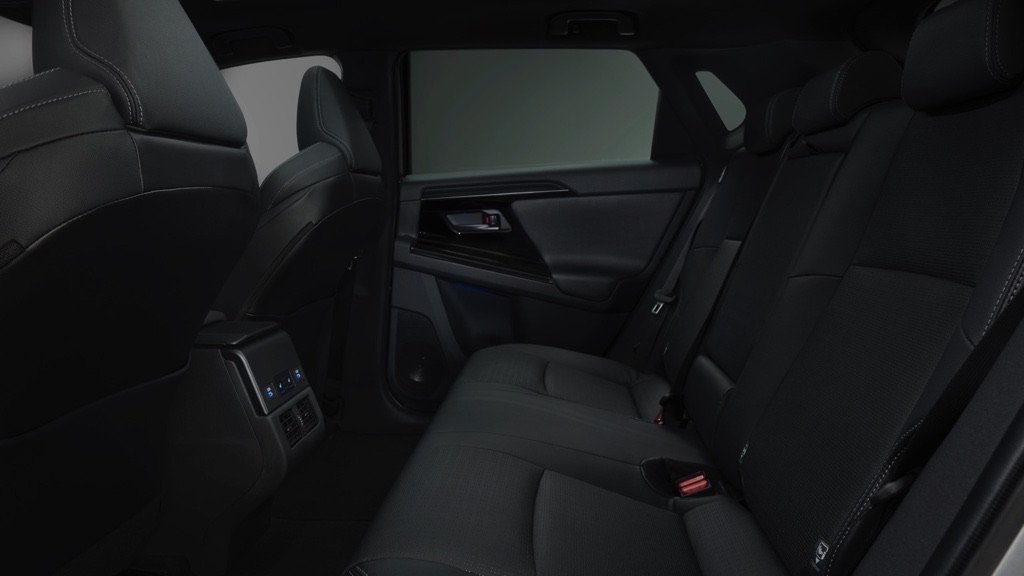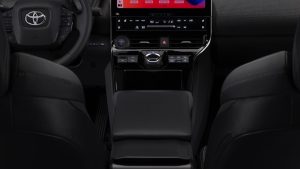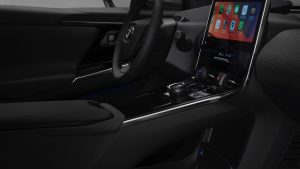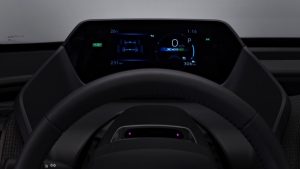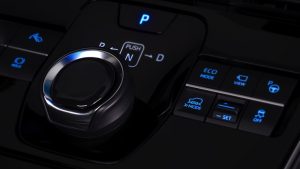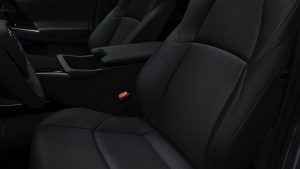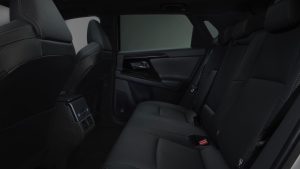The Toyota bZ4X AWD is an all-electric compact SUV that is part of Toyota’s bZ (Beyond Zero) lineup of electric vehicles. It represents Toyota’s commitment to sustainable mobility and marks the beginning of their global electric vehicle expansion.
The Toyota bZ4X AWD features a modern and stylish design, characterized by clean lines, a sleek profile, and a distinctive front grille. It showcases Toyota’s new design language for their electric vehicles, which aims to strike a balance between aerodynamics and visual appeal. The compact SUV body style offers versatility and practicality, making it suitable for various lifestyles and driving needs.
As an all-electric vehicle, the Toyota bZ4X AWD is powered by an electric motor or motor depending on the drivetrain configuration. The exact technical specifications and performance figures have not been released by Toyota as of my knowledge cutoff in September 2021. However, Toyota has stated that the Toyota bZ4X AWD will feature an all-wheel-drive system, which suggests that it will have electric motors powering both the front and rear axles. This configuration can provide enhanced traction, stability, and performance in various road conditions.
The interior of the Toyota bZ4X AWD is designed to offer a comfortable and modern driving experience. It is expected to feature high-quality materials, advanced technology, and a spacious cabin. Toyota has emphasized sustainability in the interior design, utilizing environmentally friendly materials and incorporating efficient energy management systems.
In terms of features, the Toyota bZ4X AWD is likely to include the latest connectivity options, a user-friendly infotainment system, and advanced driver-assistance systems. Toyota has been at the forefront of hybrid technology and is expected to bring its expertise in safety and driver assistance to the electric vehicle segment with the Toyota bZ4X AWD.
Toyota has not provided specific details on the release date, pricing, or availability of the Toyota bZ4X AWD. However, the Toyota bZ4X AWD is part of Toyota’s broader commitment to launching several battery-electric vehicles globally by 2025. This demonstrates Toyota’s dedication to expanding its electric vehicle lineup and offering sustainable mobility options to customers worldwide.
The Toyota bZ4X AWD represents an important entry into the electric SUV segment for Toyota. With its all-wheel-drive capability and Toyota’s reputation for reliability and efficiency, the Toyota bZ4X AWD aims to provide a compelling option for customers seeking an electric SUV that combines performance, practicality, and eco-friendliness.
| Performance | |
| Acceleration 0 – 100 km/h | 6.9 sec |
| Top Speed | 160 km/h |
| Electric Range | 315 km |
| Total Power | 160 kW (218 PS) |
| Total Torque | 336 Nm |
| Drive | AWD |
| Battery | |
| Nominal Capacity | 71.4 kWh |
| Battery Type | Lithium-ion |
| Number of Cells | 96 |
| Architecture | 400 V |
| Warranty Period | No Data |
| Warranty Mileage | No Data |
| Useable Capacity | 64.0 kWh |
| Cathode Material | No Data |
| Pack Configuration | 96s1p |
| Nominal Voltage | 355 V |
| Form Factor | No Data |
| Name / Reference | No Data |
| Charging | |
| Home / Destination | |
| Charge Port | Type 2 |
| Port Location | Left Side – Front |
| Charge Power | 6.6 kW AC |
| Charge Time (0->315 km) | 11h30m |
| Charge Speed | 28 km/h |
| Fast Charging | |
| Fastcharge Port | CCS |
| FC Port Location | Left Side – Front |
| Fastcharge Power (max) | 147 kW DC |
| Fastcharge Power (10-80%) | 100 kW DC |
| Fastcharge Time (32->252 km) | 28 min |
| Fastcharge Speed | 470 km/h |
| Autocharge Supported | Yes |
| Energy Consumption | |
| EVDB Real Range | |
| Range | 315 km |
| Vehicle Consumption | 203 Wh/km |
| CO2 Emissions | 0 g/km |
| Vehicle Fuel Equivalent | 2.3 l/100km |
| WLTP Ratings (TEL) | |
| Range | 461 km |
| Rated Consumption | 162 Wh/km |
| Vehicle Consumption | 139 Wh/km |
| CO2 Emissions | 0 g/km |
| Rated Fuel Equivalent | 1.8 l/100km |
| Vehicle Fuel Equivalent | 1.6 l/100km |
| WLTP Ratings (TEH) | |
| Range | 415 km |
| Rated Consumption | 180 Wh/km |
| Vehicle Consumption | 154 Wh/km |
| CO2 Emissions | 0 g/km |
| Rated Fuel Equivalent | 2.0 l/100km |
| Vehicle Fuel Equivalent | 1.7 l/100km |
| Dimensions and Weight | |
| Length | 4690 mm |
| Width | 1860 mm |
| Width with mirrors | No Data |
| Height | 1600 mm |
| Wheelbase | 2850 mm |
| Weight Unladen (EU) | 2075 kg |
| Gross Vehicle Weight (GVWR) | 2550 kg |
| Max. Payload | 550 kg |
| Cargo Volume | 452 L |
| Cargo Volume Max | No Data |
| Cargo Volume Frunk | No Data |
| Roof Load | 75 kg |
| Tow Hitch Possible | Yes |
| Towing Weight Unbraked | 750 kg |
| Towing Weight Braked | 750 kg |
| Vertical Load Max | 75 kg |
| Miscellaneous | |
| Seats | 5 people |
| Isofix | Yes, 2 seats |
| Turning Circle | 11.4 m |
| Platform | TMC E-TNGA |
| EV Dedicated Platform | Yes |
| Car Body | SUV |
| Segment | JD – Large |
| Roof Rails | Yes |
| Heat pump (HP) | Yes |
| HP Standard Equipment | Yes |
Home And Destination Charging (0 -> 100%)
A public charging station is required to use the highest possible charging rate. The EVSE/charging station’s charging capacity affects how long it takes to fully charge the battery. The table below shows all possible options for fully charging the Toyota bZ4X AWD.
In Europe, plugging an electric car into an outlet is often as easy as plugging it into a household outlet, but there are differences from country to country. The table below shows the different ways to charge the Toyota bZ4X AWD, but in some countries, some chargers may not be available.
Type 2 ( IEC 62196)
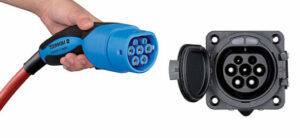
| Charging Point | Max. Power | Power | Time | Rate |
| Standard 6.6 kW On-Board Charger | ||||
| Wall Plug (2.3 kW) | 230V / 1x10A | 2.3 kW | 32h45m | 10 km/h |
| 1-phase 16A (3.7 kW) | 230V / 1x16A | 3.7 kW | 20h30m | 15 km/h |
| 1-phase 32A (7.4 kW) | 230V / 1x29A | 6.6 kW | 11h30m | 27 km/h |
| 3-phase 16A (11 kW) | 230V / 1x16A | 3.7 kW | 20h30m | 15 km/h |
| 3-phase 32A (22 kW) | 230V / 1x29A | 6.6 kW | 11h30m | 27 km/h |
| Optional 11.0kW On-Board Charger | ||||
| Wall Plug (2.3 kW) | 230V / 1x10A | 2.3 kW | 32h45m | 10 km/h |
| 1-phase 16A (3.7 kW) | 230V / 1x16A | 3.7 kW | 20h30m | 15 km/h |
| 1-phase 32A (7.4 kW) | 230V / 1x32A | 7.4 kW | 10h15m | 31 km/h |
| 3-phase 16A (11 kW) | 400V / 3x16A | 11 kW | 7 hours | 45 km/h |
| 3-phase 32A (22 kW) | 400V / 3x16A | 11 kW | 7 hours | 45 km/h |
Fast Charging (10 -> 80%)
If you want to enjoy driving an electric car, one of the most important features to consider is the number of miles per hour the car can travel while charged. This is called the “range” of the car. All electric cars have a certain range, even if they are 100% charged. This is because they do not have an internal combustion engine to lean on if you need to drive a long distance.
Max. Power: The maximum power provided by the charging point
Avg. Power: The average power provided by the charging point during a session of 10% to 80%.
Time: the time it takes to charge from 10% to 80%
Speed: the average charging rate during the session of 10% to 80%
Combined Charging System (CCS Combo 2)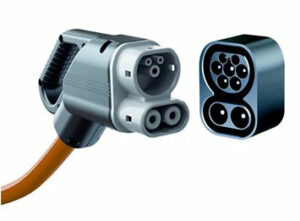
| Charging Point | Max. Power | Avg. Power | Time | Rate |
| CCS (50 kW DC) | 48 kW | 46 kW | 62 min | 210 km/h |
| CCS (150 kW DC) | 147 kW | 100 kW | 28 min | 470 km/h |
| Brand | Toyota |
| Model | bZ4X AWD |
| Body Style | SUV |
| Motor power | 160 |
| Maximum Torque, Nm | 336 |
| Battery Energy, kWh | 71.4 |
| Power reserve (NEDC/EPA/WLTP), km | - / - / 461 |
| Level Charging (230/400/DC), hours | 10.15 / 7.0 / 0.28 |
| Electrical Acceleration, 0-100 km/h (0-62.1 mph) in sec | 6.9 |
| Top Speed, km/h | 160 |
